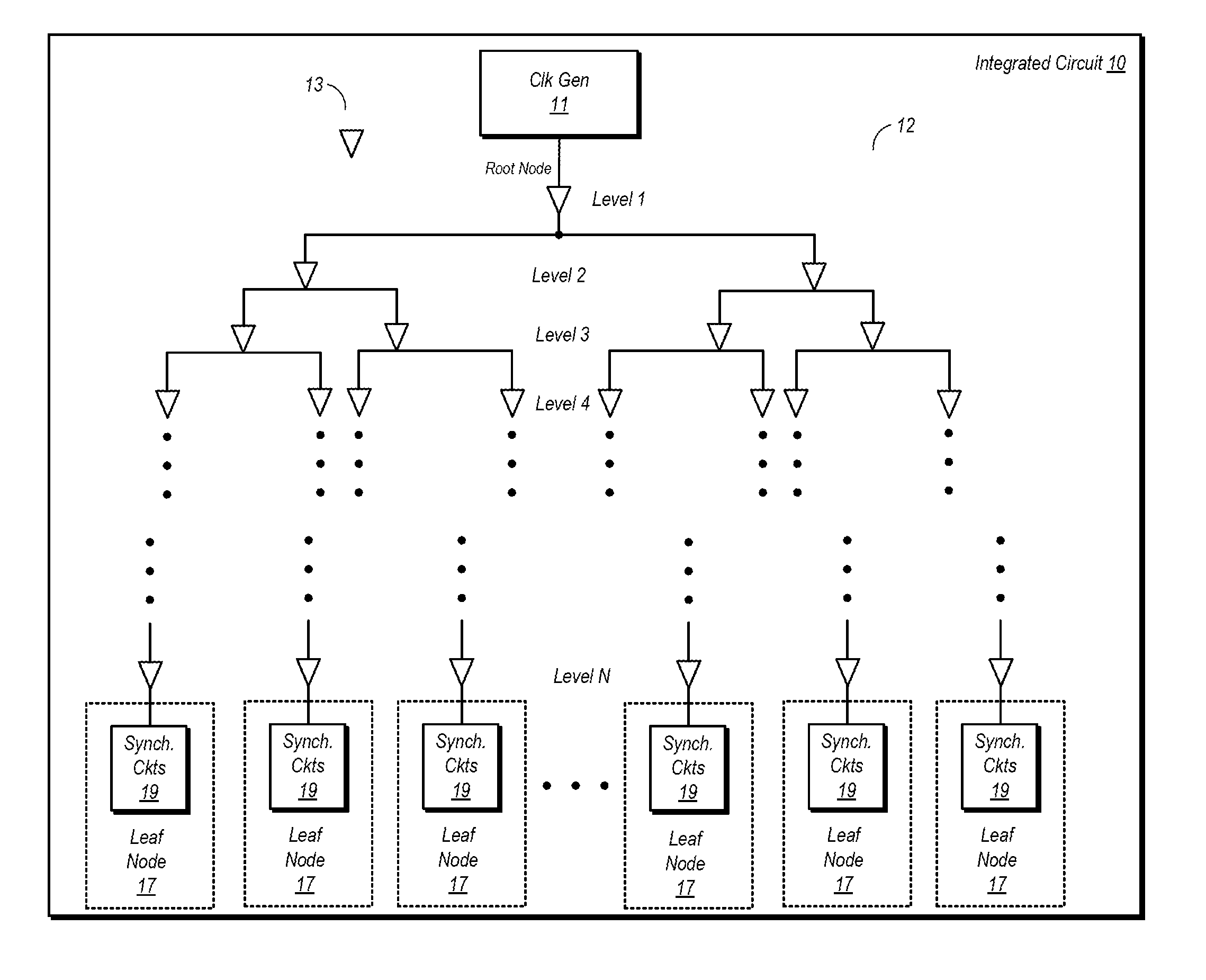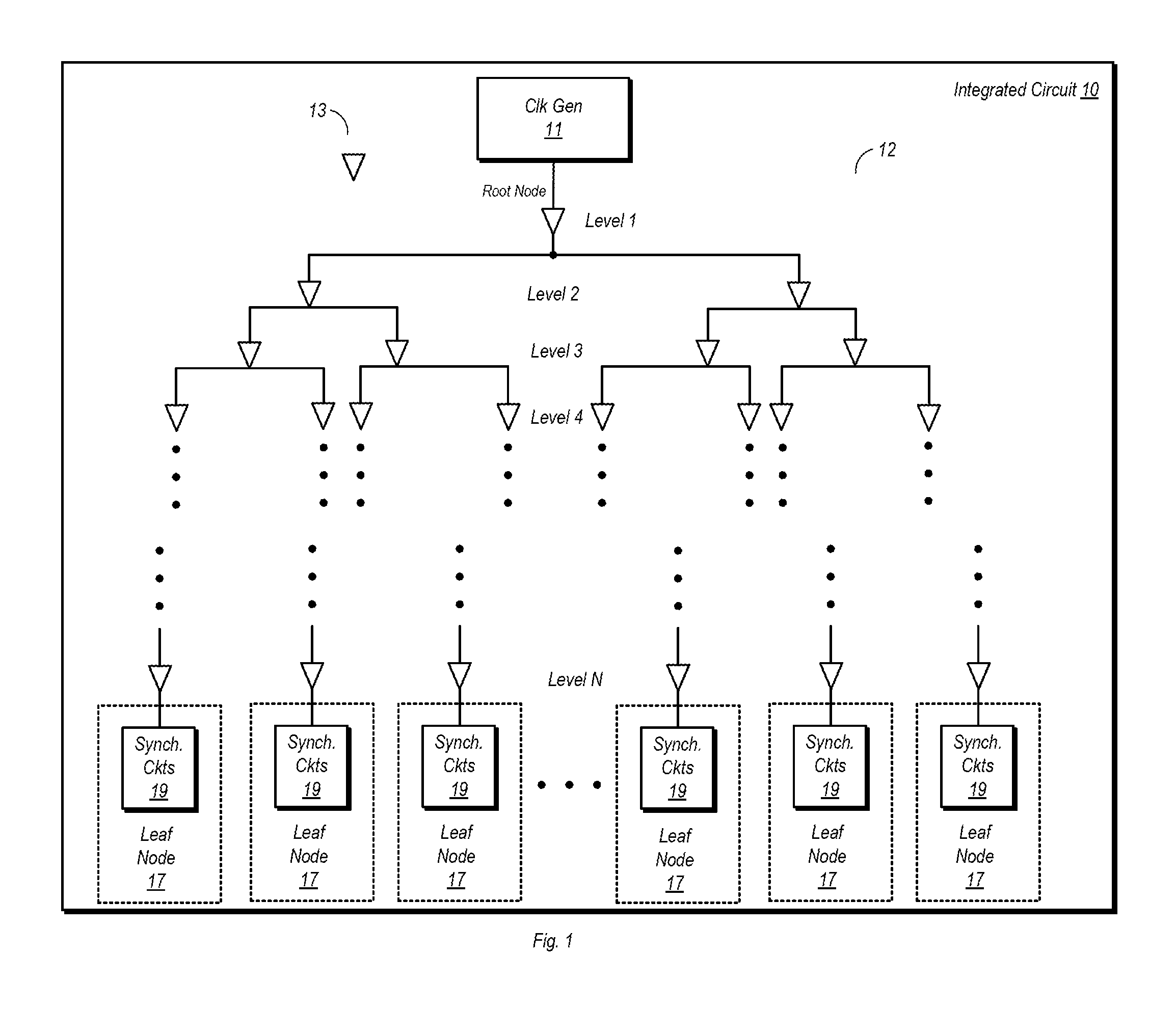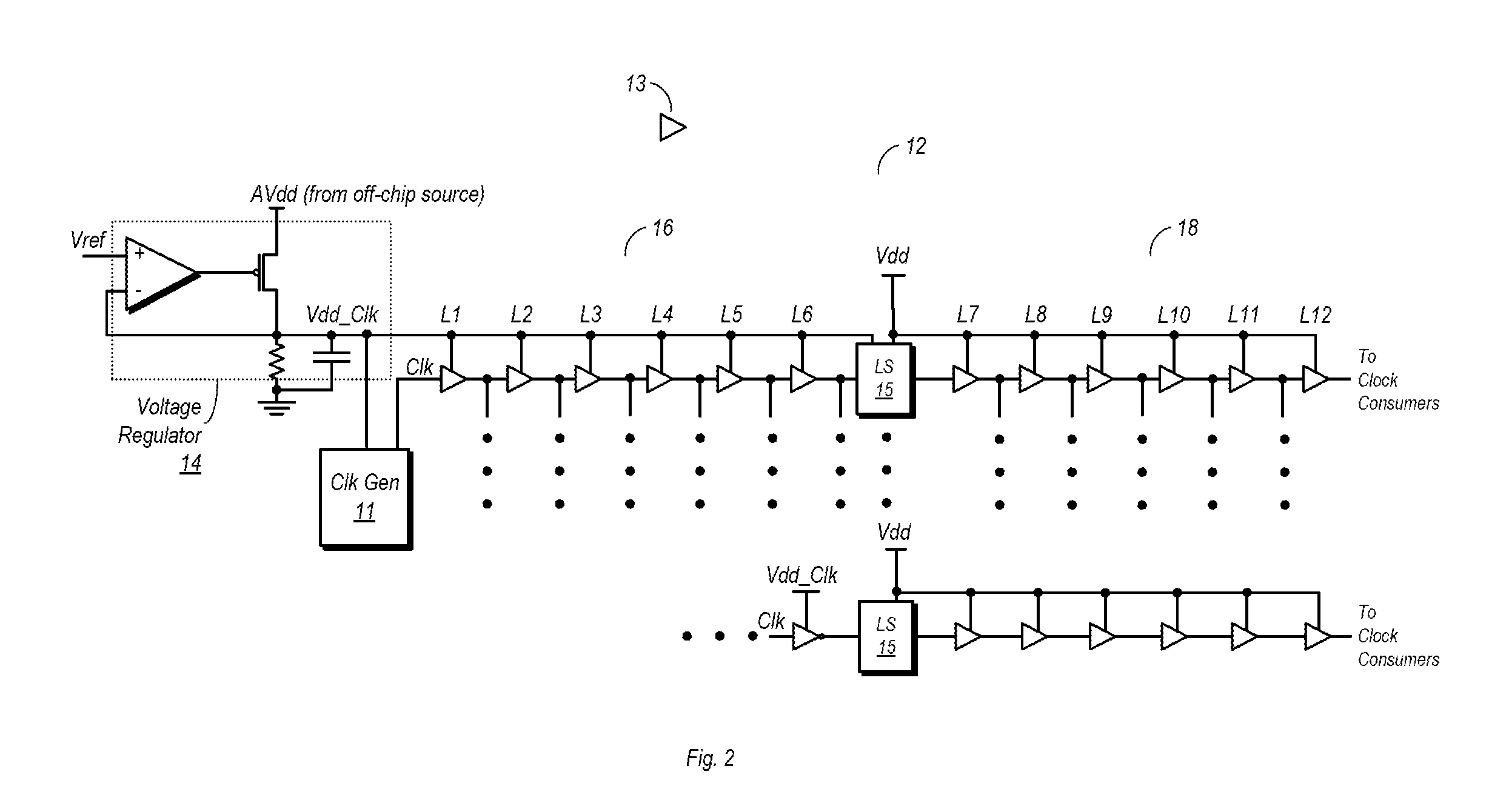Power Source for Clock Distribution Network
a power source and clock technology, applied in the field of integrated circuits, can solve problems such as adversely affecting clock signals, and achieve the effect of reducing the amount of jitter and less susceptible to nois
- Summary
- Abstract
- Description
- Claims
- Application Information
AI Technical Summary
Benefits of technology
Problems solved by technology
Method used
Image
Examples
Embodiment Construction
[0018]FIG. 1 is a block diagram of one embodiment of an integrated circuit including a clock distribution network. In the embodiment shown, integrated circuit (IC) 10 includes a clock generation circuit 11 that is configured to generate a clock signal for distribution to a number of different synchronous circuit 19. Clock generation circuit 11 may be one of a number of different types of clock generation circuits, such as an oscillator, a phase locked loop (PLL) or any other circuit capable of generating a clock signal. The synchronous circuits 19 may be any type of circuitry that utilizes one or more clock signals during operation. Such clock consumer circuits include, but are not limited to, flip-flops, timers, execution units, or any other sequential logic circuits. Each instance of synchronous circuits 19 shown in FIG. 1 may represent one or more circuits that utilize the clock signal. For example, a block of synchronous circuits 19 may represent a group of flip-flops, a single ...
PUM
 Login to View More
Login to View More Abstract
Description
Claims
Application Information
 Login to View More
Login to View More - R&D
- Intellectual Property
- Life Sciences
- Materials
- Tech Scout
- Unparalleled Data Quality
- Higher Quality Content
- 60% Fewer Hallucinations
Browse by: Latest US Patents, China's latest patents, Technical Efficacy Thesaurus, Application Domain, Technology Topic, Popular Technical Reports.
© 2025 PatSnap. All rights reserved.Legal|Privacy policy|Modern Slavery Act Transparency Statement|Sitemap|About US| Contact US: help@patsnap.com



